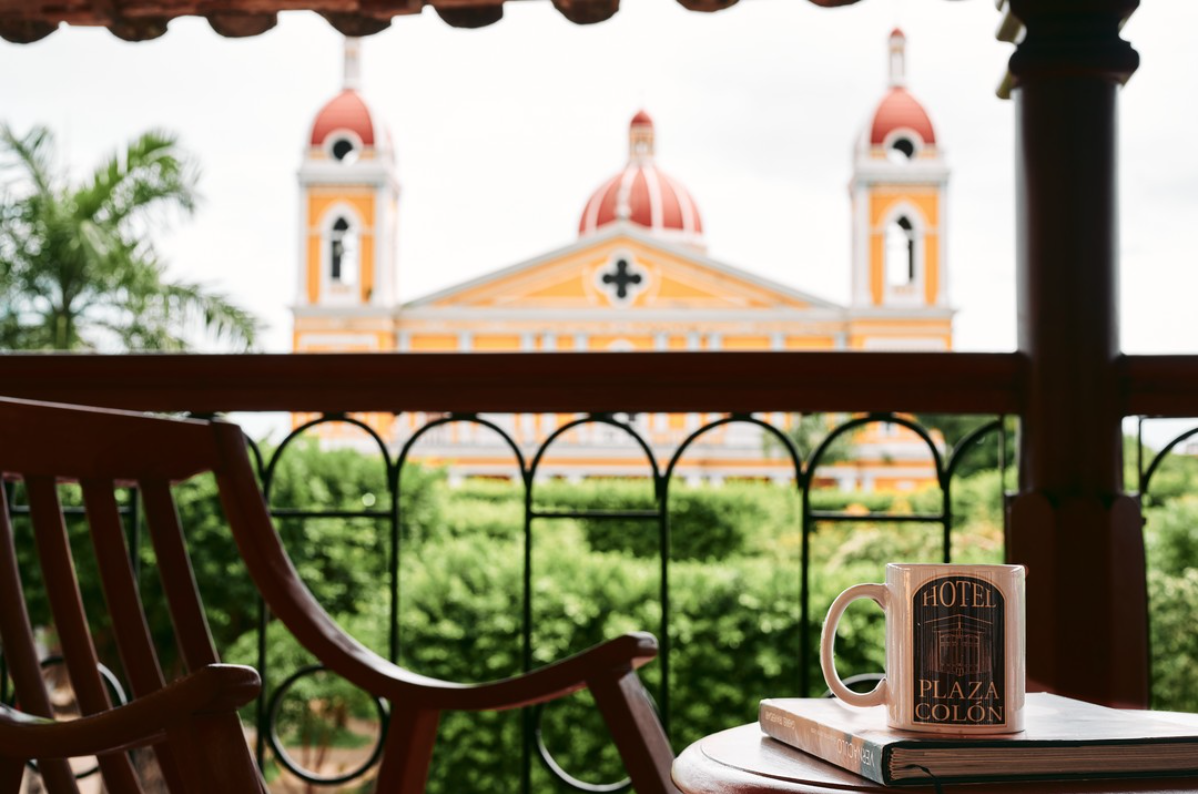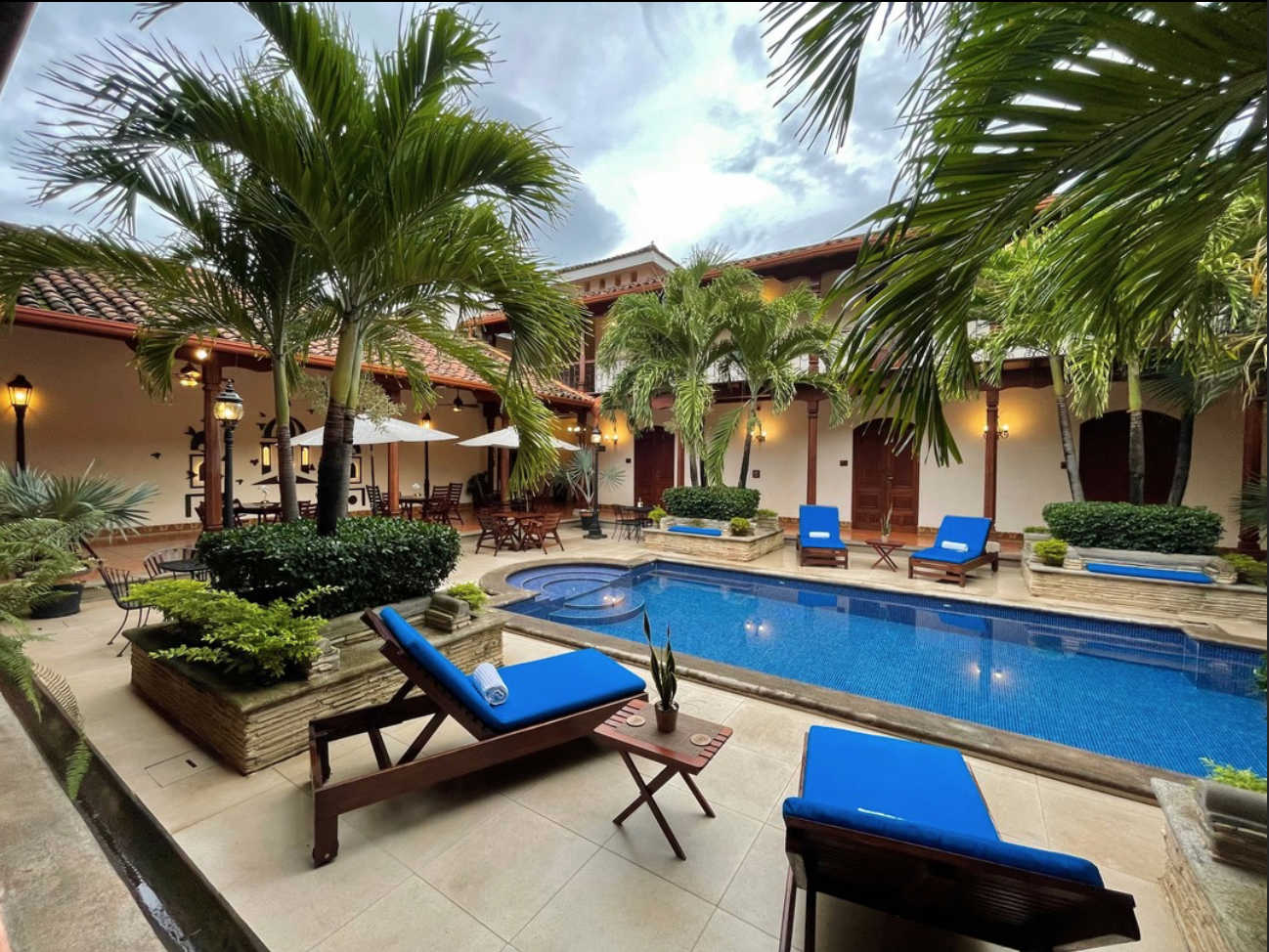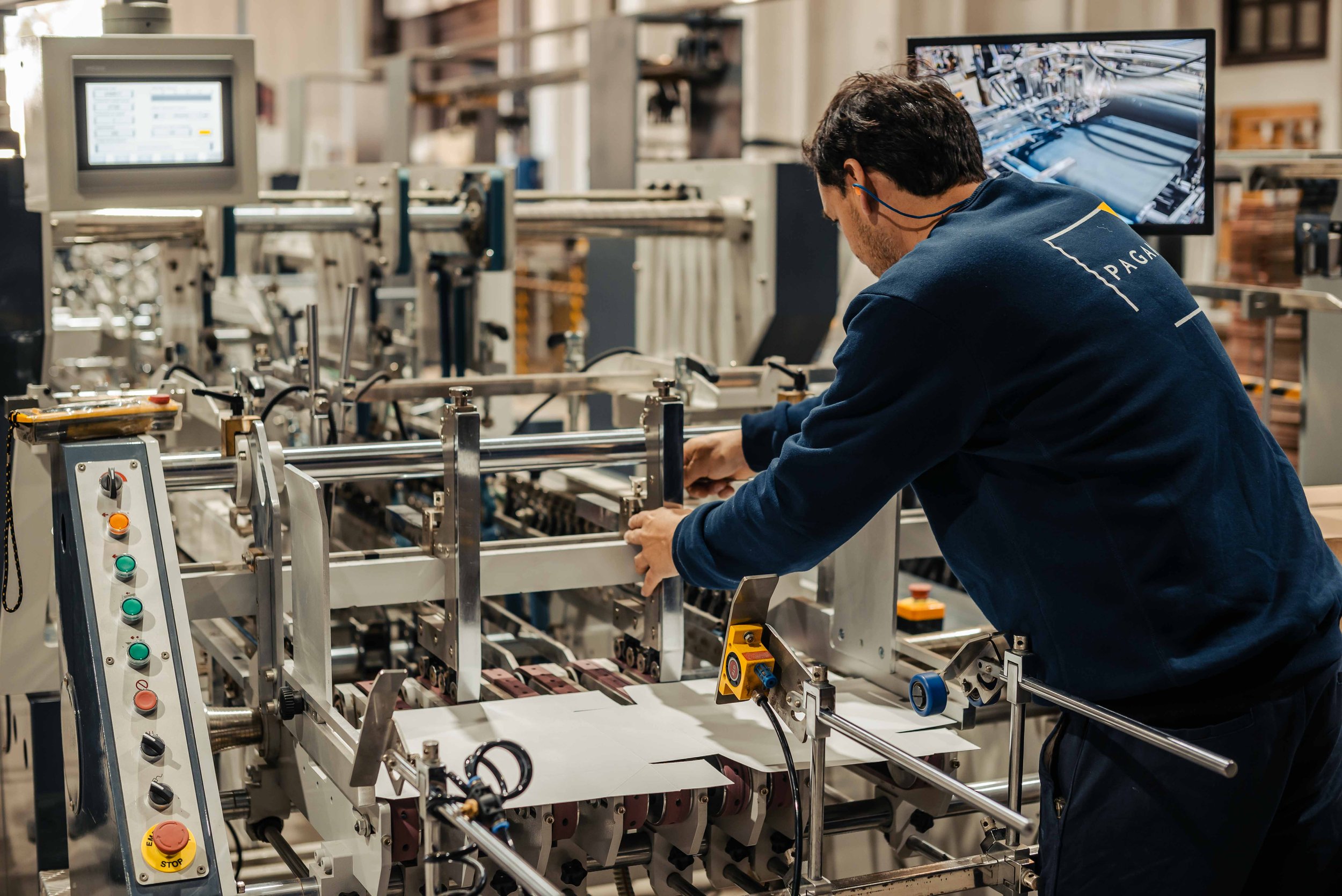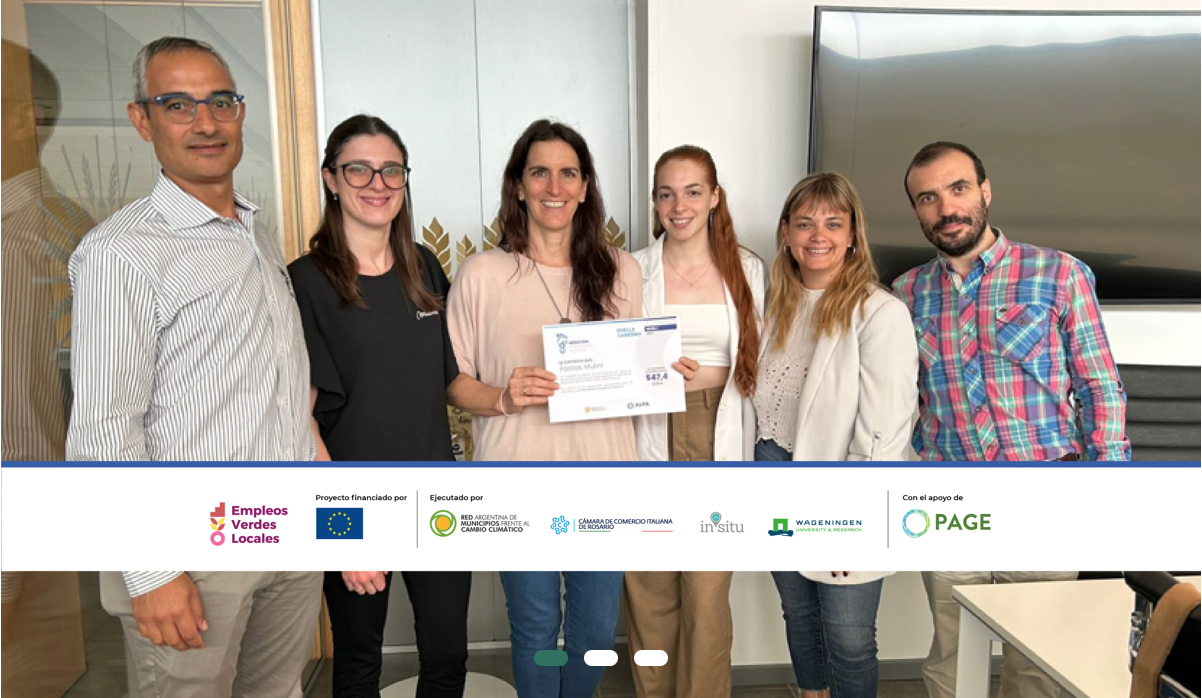
The Plaza Colón Hotel, the Mulini Pasta factory, and the Pagani Graphic Industry are the three companies that closed their Carbon Footprint during the month of December. Below, we learn some details of their experiences in the words of the protagonists themselves.
Hotel Plaza Colon (Nicaragua)
Hotel Plaza Colón (Nicaragua)The Hotel Plaza Colón operates in the town of Granada (Nicaragua), and has been growing and evolving for several years in terms of environmental awareness. Since its founding in 2006, they have been working on sustainability issues and support for the local community and have measured their carbon footprint on several occasions. They also pursued and obtained Rainforest Alliance certification (which is awarded to those companies that demonstrate compliance with certain requirements in the area of sustainable tourism), and have received the tourism excellence award in the environmental sustainability category awarded by the National Chamber of Tourism of the country. Despite the crises that they have also had to face, they always maintained their commitment to the fight against climate change.
Xochil Aguirre holds the position of General Manager of the Hotel, and shared valuable reflections regarding the hotel industry and the impact of its activities:
“The hotel sector plays a fundamental role in the service chain, and therefore, the impact it generates on the operations of this industry globally can affect the environment. This is why we consider it important, and at the same time it is our responsibility as a sector, to become aware of this impact and how our daily actions can somehow reverse the environmental damage that has been caused over the years.”
 The Plaza Colón Hotel is located in front of the Central Park of Granada (Nicaragua). Photo: Instagram
The Plaza Colón Hotel is located in front of the Central Park of Granada (Nicaragua). Photo: Instagram
On the other hand, he listed many of the actions they are carrying out in environmental matters, such as the reforestation of the “Plaza Colón Forest” (planting nearly 500 precious wood trees in July 2016), the management of waste and/or waste for recycling, the decision to replace plastic containers with glass bottles, or the initiative to reuse towels and sheets, which is carried out by the guests themselves. “It can be concluded that our guests support this initiative that is focused on educating customers towards programs that allow them to save water, energy, and supplies such as detergent and fabric softener. But in addition, we have installed energy-efficient lighting, faucets and lighting with a sensor system in public bathrooms,” says Xochil.
It is for all this that they feel great pride and satisfaction in ensuring that their initiatives are having a positive impact, and that the commitment assumed in environmental matters is really being fulfilled, a fact that motivates them to continue giving their best as an organization, and to continue doing everything their due in pursuit of a planet that remains a safe place for future generations.

In addition to comfort and services, the hotel is very committed to environmental matters. Photo: Instagram
Pagani Graphic Industry
Industria Gráfica Pagani is a MSME that has been designing, developing and manufacturing cardboard and microcorrugated packaging for more than 50 years in the city of Rosario. It pursues the objective of achieving practical, distinguished and efficient packaging, working together with its clients and main manufacturers of automatic packaging machines. In addition, it has an integrated quality, safety and environment policy, being certified under ISO 9001 and FSC standards.
In this case, they measured their organization’s Carbon Footprint for the first time, and defined it as a fundamental step in their environmental management: “It means that we are assuming the responsibility of understanding and quantifying the impact we generate in terms of greenhouse gas emissions. greenhouse effect, and this allows us to identify concrete measures to reduce our environmental impact,” said Martina Pagani, head of Integrated Management of the company.
A point highlighted by Martina was also the fact of encouraging the active participation of employees to identify opportunities for improvement and implement more sustainable practices. In addition, she highlighted that they seek to establish alliances with suppliers and collaborators who share their same environmental values.

The Pagani Graphic Industry pursues the objective of achieving practical, distinguished and efficient packaging. Photo: Website
“The most significant challenges we face in balancing our business and environmental objectives are, in many cases, economic in nature. Transitioning to more sustainable practices may require upfront investments and changes to the way we operate.” Pagani finished.
Mulini Pasta
Finally, Pastas Mulini is another family business located in the town of Los Molinos, province of Santa Fe. It is a project that began in 2016, with the purpose of producing high quality pasta with the authentic Italian flavor, from the cultivation of wheat with good agricultural practices. This food production is not only distinguished by its quality but also contributes to the well-being of the environment and people, because they are committed to the protection of natural resources through sustainable development.

Both the measurement of Industria Gráfica Pagani and Pastas Mulini took place within the framework of the Local Green Jobs Project.
“Why is it important to measure the carbon footprint? Because it allows us to know the environmental impact of our production and take measures to reduce it. In this way, we can contribute to mitigating climate change, which is one of the greatest challenges of our time. The commitment to work with environmental responsibility belongs to everyone,” summarized the Pastas Mulini team through their social networks.
Source: ALPA HUELLA DE CARBONO